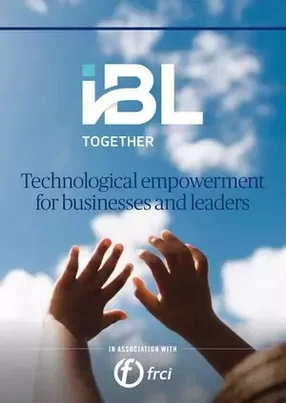IBL Together: Streamlining mergers through technological empowerment of leaders and businesses
GML and Ireland Blyth merged to form IBL Together in July 2016, retaining the name of the latter to maintain brand familiarity. Today, IBL Together has grown to encompass an incredibly diverse portfolio across a number of industries, from manufacturing to banking and beyond, with over 280 companies and more than 26,000 team members. In 2016, Laurent Fayolle, formerly GML’s Business Technology Manager, took on the role of Group Information Technology Executive at IBL Together. In this role, Fayolle is tasked with heading and restructuring the Group IT department.
After the merger, a complete revamp of the governance model was started and the team had to be restructured to cater for this new governance to be rolled out across the various companies. As Ireland Blyth and GML both had completely different IT governance models, Fayolle explains, “on one side we had a completely decentralised model, and on the other we had a much more centralised model, as well as a consequent team to manage and operate the IT activities. A new mandate had to be defined towards a ‘First-time right’ approach”. This, he says, meant that each step had to be carefully considered in order to minimise disturbance to the business and its teams. Solutions had to be tailor-made for each challenge, to allow for the diversity of IBL’s various operations, while maintaining a stable work process.
Each operation, Fayolle notes, had to be granted more autonomy, or “empowerment” to heighten focus on the core business. “Our model had to become more decentralised. It became more about empowering IT managers to make these decisions for themselves. As a group, we can’t decide what’s best for business better than those that are directly involved on a daily basis. As IT strategies should always be aligned with business strategies, it doesn’t make sense for the Group IT department to make business decisions when, instead, a team can be more empowered to tackle its business challenges inside a clear and defined framework.”
IBL has a diverse portfolio which has allowed Fayolle to assess each aspect of the business on its own merits, measure each problem individually and then target necessary solutions. He explains: “We are so diverse that it doesn’t make sense to have a single set of tools. Do we really need a single governance for all the entities in the group? Some need a higher level of autonomy than others because they are much more mature and have been doing great on their own for years. Some need more help. I don’t think there is any one-size-fits-all solution and I don’t think there ever will be. We have to fine-tune our approach to accommodate each company’s subtleties.”
The transformation has not been carried out solely by IBL Together, with expert partners being brought in to tackle specialised areas of change. This is particularly the case for cybersecurity, which has been a key focus of IBL’s efforts in recent times, and Fayolle has worked to find the right partners to provide the necessary solutions. “I approach it from the mindset of ‘I don’t want to talk about possible solutions, I want to talk about the best partners bringing solutions that will help us create value’. It always comes down asking who our partners are and what needs we have. We want partners with a high level of ethics, competence and willingness to create value by partnering with IBL. You know it’s a ‘win-win’ when you can challenge a partner and they can use their skills to match your expectations.”
The analysis and distribution of data has become the foundation for change across a range of industries. In recent history, data processing was a manual process that involved heavy investment both in terms of manpower and money in order to be effective. Today, businesses increasingly turn to modern, more efficient and effective solutions. Fayolle explains: “The expression I consider is ‘data is the new oil’. However, I think that’s only true if you can get useful information from the data you own. Without context – without it being interpretable – the data is useless. Information is key.”
Companies must consider how they use those analytics to capitalise on their potential. The implementation of automated processes can dramatically increase the operational efficiency of a company without having a huge impact on its overheads. “It’s much easier to work with data today thanks to AI and machine learning working with AIaaS, all whilst doing this for a small amount of money compared to building your own platform,” Fayolle says. “Our duty is to understand our data and make the best use of it, but to also ensure we have a proper data classification process to better protect what should be protected.”
The inter-connectivity of cloud-based data analytics, AI or machine learning can present its own issues with regard to cybersecurity. As threats become more credible as technology evolves, companies must be able to protect the information they hold. Speaking on the importance of cybersecurity, Fayolle says: “We can never forget that information in the wrong hands can be extremely harmful. Securing the data and making sure we know who can access it and for what purpose is absolutely imperative. As James Snook once said, if you think you haven’t been attacked yet, it’s because you aren’t looking hard enough.”


